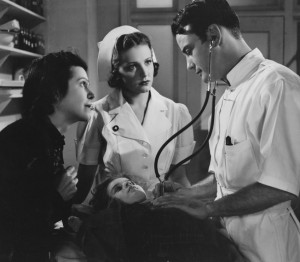I’m a Doctor of Musical Arts, but I seldom say so. In music schools like the New England Conservatory where I teach, the degree-ed-ness of the faculty is in inverse proportion to age. The older the faculty member, the less likely they are to have advanced degrees. Some older pianists earned advanced degrees in other fields. Charles Rosen had a Ph.D. in French literature… The Latin word “doctor” comes from “docēre” — “to teach.”

I don’t wish to be addressed as “Doctor,” or as “Professor.” In our institution, we have no academic rank. I prefer to refer to all of my colleagues as “faculty members,” (a nice equality). I was surprised and disappointed to read on the self-printed cards of one colleague, “Professor of Piano.” We have no professors at NEC, as my last institution, the Juilliard School, has no professors.
I recognize that “professor” can be an honorific, or a job description. That’s complicating, since some institutions have microscopically-enforced gradations of academic rank: “Oh, here at the University, I’m an adjunct associate professor of tuba.” Once upon a time, I did receive a letter from an East German friend addressed to “Herr Professor Doktor Brubaker.” And among New Orleans musicians, there are the pianists Professor Longhair, and Dr. John.
Doctoral level education for musical performers is still a new thing. American schools began offering D.M.A. study in the 1950s. Some European schools are now beginning Ph.D. programs for performers, and trying to determine what best comprises that education.
It’s a challenge. The doctorate may be a necessary credential for musicians seeking college-level teaching positions today, but it is not merely a credential. The distinct musical viewpoint and understanding that practicing musicians can bring to musical research and inquiry may not be appreciated by the theorists and musicologists who work with performers in advanced programs. It may be too easy to view newly admitted D.M.A. students as highly-skilled music athletes lacking the general education, or the specific musical education of university-trained musicians. Then a D.M.A. program can turn into a remedial course.
But the unique laboratory conditions of the concert stage need to be tapped. There’s an access to music — to the fundaments and substance of the art — that arises when players play. That needs cultivating.
